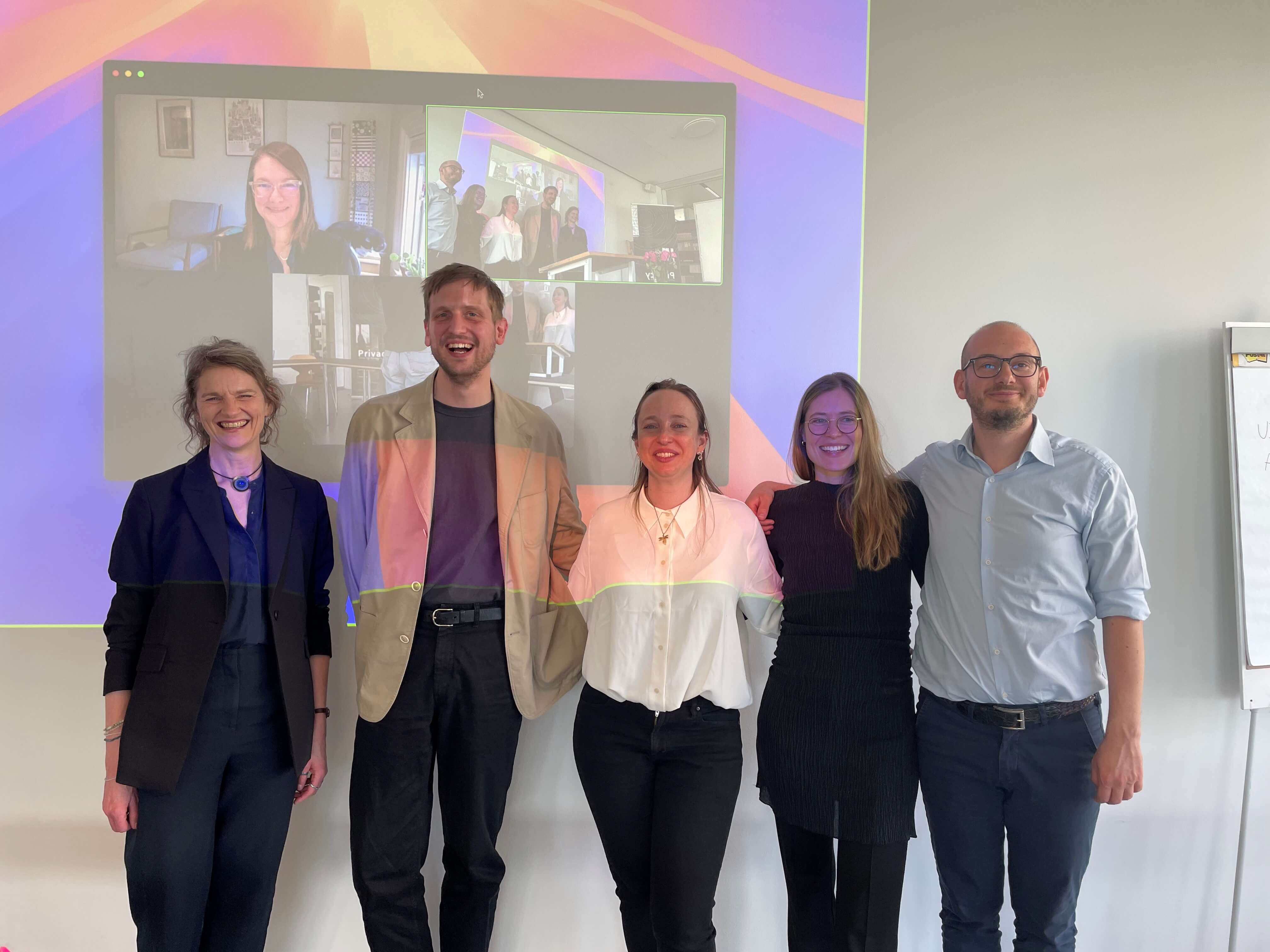Centre for Privacy Studies celebrates book launch and transformation into new thematic structure

Centre for Privacy Studies (PRIVACY), a Centre of Excellence funded by the Danish National Research Foundation, celebrated the release of its latest publication Privacy in Early Modern Saxony: Perspectives on Architecture, Culture, Health, Law, and Religion earlier this month. The book, edited by PRIVACY scholars Natacha Klein Käfer, Paolo Astorri, Søren Frank Jensen, Natalie Patricia Körner, and Mette Birkedal Bruun, delves into how privacy was understood and negotiated in Saxony during the early modern period, a time of profound political, religious, and cultural change.
At the book launch, attendees had the opportunity to hear from some of the authors as they shared their research findings, discussed the collaborative process behind the book, and reflected on their interdisciplinary work. The event concluded with a reception, where colleagues and researchers gathered to celebrate this significant scholarly achievement from the PRIVACY team.
Privacy in Early Modern Saxony represents both the culmination of years of dedicated research by the Dresden case team during PRIVACY’s first funding programme (2017-2023) and the restructuring of the Centre into a new thematic research design in its second programme (2023-2027). The authors’ interdisciplinary approach to privacy, spanning architecture, health, law, and religion, marks the first stirrings of the Centre’s restructured research design, which is organized around the five key thematic areas: Beliefs, Health, Home, Law, and Urban Space. The five themes are rooted in the specialized historical studies conducted in the case teams, while also engaging this knowledge with areas that are topical in contemporary privacy discussions on a broader, global scale.
The restructuring of PRIVACY in 2023, conceptualized by the Centre Director Mette Birkedal Bruun, came with promotions of five postdoctoral scholars who became research group leaders in the second period of PRIVACY. The themes and their leaders are Beliefs (Bastian Vaucansson, formerly Lars C. Nørgaard), Health (Natacha Klein Käfer), Home (Natalie P. Koerner), Law (Paolo Astorri), and Urban Space (Johannes Ljungberg). More information about the research conducted within these themes can be found here.
This structure was designed not only to enhance the Centre’s internal dynamics but also to strengthen its scholarly vibrancy and creativity as well as its wider impact on different academic communities. The theme leaders have taken on greater responsibility, enabling a more decentralized research leadership. Each leader has considerable autonomy in shaping the direction of their theme, and a direct influence on future research pathways.
A key aim of the new structure has been to continuously engage the specialized historical research with contemporary and global discussions of privacy – with the understanding that insights from the past can inform our comprehension of the present. One way the Centre approaches such discussions is through ongoing exchange with scholars and practitioners working on privacy-related issues today. The thematic organization supports the development of PRIVACY’s scholarly focus from a Euro-centric to a more global direction that defines much of today’s cutting-edge historical research. The themes lend themselves to a geographically and culturally broad horizon of inquiry. At the same time the five themes are central not only to early modern culture, but also today. The thematic structure thus also underscores the Centre’s growing commitment to addressing contemporary privacy issues through a historical lens.
